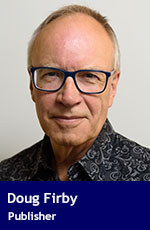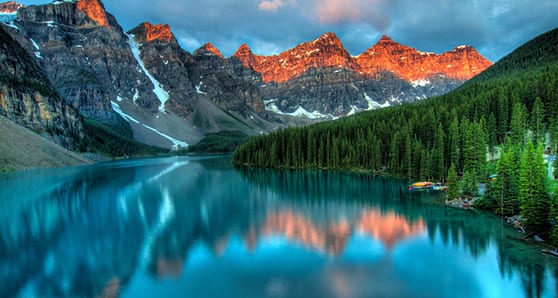 What does silence sound like? To us city-slaves, it is a swelling orchestra of white noise that fills a void our ears just aren’t accustomed to. We call it tinnitus.
What does silence sound like? To us city-slaves, it is a swelling orchestra of white noise that fills a void our ears just aren’t accustomed to. We call it tinnitus.
Most of us don’t get a chance to experience authentic silence very often. Some of us never will.
On a recent winter backcountry trip to the remote and historic Mount Assiniboine Lodge in the Rocky Mountains, I experienced the closest thing to full silence that I have had in memory. Out of reach from “civilization”, there are no cell phones or Internet there. There are no honking horns, no unbaffled motorcycles or diesel trucks, no televisions, none of the clicks and beeps that form the wallpaper of our daily existence.
Were it not for the helicopter that arrives a couple of times a week or passenger jets that occasionally pass over eight kilometres above, there would be no mechanical noises at all, except the click of boots into skis.
The power of silence struck me with full force as I was trekking across Magog Lake, separated by a few hundred metres from fellow adventures. I paused to catch my breath and became instantly aware of an aural phenomenon I had forgotten even existed.
Around me was a sea of white – pure powder snow stretching across the lake and up the slopes of the surrounding mountains, broken only by clusters of evergreens that adorn the ragged Rockies like verdant beards below bald tops. An infinite number of tiny snowflakes, packed two metres deep, act as tiny baffles soaking up the sound waves.
An experience such as this is profound. It changes your view of the world.
Back home in Calgary, writing these words, I am aware of the cars passing on a freeway a half-a-kilometre from my home. I hear motors revving, the phone beeping and the dogs barking. And I suddenly miss something I had forgotten even existed.
This is nature at its best. There has been some very interesting research in the past few years on the restorative powers of a nature experience. Journalist Richard Louv has coined the term “nature-deficit disorder” to describe the psychological and physiological impacts of not getting out there, particularly in children. He argues that children who do not experience nature are more likely to: display a range of behavioural problems (including attention disorders and depression), suffer from obesity and, over the long term, experience a decline in the ability to cope with stress and adversity.
Although critics dismiss Louv’s work as “quasi-science”, scientists are starting to take a serious look. Researchers at the University of Illinois, for example, are investigating whether time in the woods could be used to supplement treatment of Attention Deficit Disorder. And a study at the University of Kansas found that young people who backpacked for three days showed higher creativity and cognitive abilities.
If there is substance to Louv’s theories, it raises some big questions about how Canadians should choose to shape our futures. If we need to experience nature in our daily lives, then that suggests we must get much more aggressive about not only protecting our natural spaces but also making sure those spaces are not all as remote (and for many, unattainable) as Nahanni National Park Reserve in the Northwest Territories. We need to have spaces in our back yards.
It also means we need to rethink the design of modern cities, so that nature plays a bigger role in the places where most of us spend our lives.
City designers will need to consider nature-inspired – or ‘biophilic’ – design, incorporating nature into the very bones of the city. That means parks, yes, but also the way we shape our neighbourhoods, shopping centres and the buildings we live and go to work in.
“I believe cities can become engines of biodiversity,” Louv told National Geographic. “It starts with planting a lot of native plants, which revive the food chain and bring back butterfly and bird migration routes.”
Of course, we will never be able to reproduce the soul-enriching silence to be found in the backcountry of the Canadian Rockies. We can, however, take obvious and practical steps to make our day-to-day lives a little more harmonious.
First, however, we have to talk about whether this is something we want badly enough to our invest time, money and energy in. It is a national debate worth having.
Veteran political commentator Doug Firby is president of Troy Media Digital Solutions and publisher of Troy Media.
The views, opinions and positions expressed by columnists and contributors are the author’s alone. They do not inherently or expressly reflect the views, opinions and/or positions of our publication.


